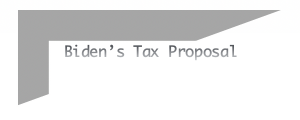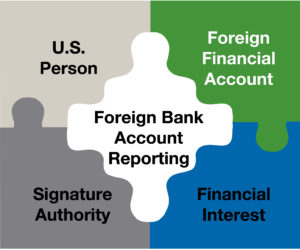The U.S Department of Justice, Tax Division:
Federal Tax Prosecutions Continue Unabated
 Many taxpayers are skeptical of the IRS and feel that the system is “rigged” against the small guy. These taxpayers may also feel that those with substantial means or political connections can get away with cheating the U.S. government out of its fair share of taxes. Contrary to public perception, when it comes to criminal prosecution of tax cheats, the U.S. Department of Justice, Tax Division is an affirmative action prosecutor.
Many taxpayers are skeptical of the IRS and feel that the system is “rigged” against the small guy. These taxpayers may also feel that those with substantial means or political connections can get away with cheating the U.S. government out of its fair share of taxes. Contrary to public perception, when it comes to criminal prosecution of tax cheats, the U.S. Department of Justice, Tax Division is an affirmative action prosecutor.
The following examples illustrate that, even those working within the U.S. tax system are subject to prosecution. It makes no difference whether you are a politician, tax attorney, judge or IRS agent.
Be aware that in the eyes of the U.S. government, a tax cheat is a tax cheat.
Florida State Representative Pleads Guilty To Wire Fraud And Failure To File Federal Income Tax Returns
On September 30, 2016,Reginald Fullwood, a member of the Florida House of Representatives was convicted of one count of wire fraud and one count of failure to file federal income tax returns. According to the documents filed with the court, during his first election bid as well as his campaign for reelection, Fullwood made a number of wire transfers from the “Reggie Fullwood Campaign” bank account to a bank account in the name of Rhino Harbor, LLC, a nominee entity wholly owned by Fullwood. Fullwood created the nominee entity to conceal his diversion and use of approximately $65,000 in campaign contributions which he used to pay for personal expenses including restaurants, groceries, retail shopping, jewelry purchases, flowers, fuel and liquor.
Former IRS Revenue Officer And Owner Of Tax Consulting Business Pleads Guilty To Tax Evasion
On October 4, 2016 a former Internal Revenue Service (IRS) revenue officer pleaded guilty to one count of tax evasion and one count of corruptly endeavoring to impede the due administration of the Internal Revenue laws. The plea was taken in the United States District Court, for the Middle District of North Carolina.
According to plea agreement filed with the court, Henti Lucian Baird (“Baird”), a North Carolinian, filed tax returns each year but did not paythe income taxes reflected on his returns,dating back to 1998. Prior to starting HL Baird’s Tax Consultants in 1989, Baird was a revenue agent with the IRS for 12 years. Baird advertised himself to clients as specializing in “IRS problems, delinquent returns, offer-in-compromise, tax problems, delinquent employee taxes and release of liens and levies.”
Baird evaded paying his federal income taxes from 1998 to 2013by:(i)creating over 10 nominee bank accounts in the names of his children to hide hundreds of thousands of dollars; (ii) submitting false Form 433-A to an investigating revenue officer that did not reveal all of his nominee bank accounts; (iii) filing a bad faith, Chapter 13 bankruptcy petition wherein Baird submitted a cash offer in compromise, made a request for discharge and an application for subordination of his federal tax lien; and (iv)transferring funds out of nominee accounts to avoid impending IRS levies. During this time period, Baird continued to pay the mortgage on his 4,300 square-foot home, annual fees for a timeshare he owned in Florida and car payments on a BMW. In an admission to the revenue officer, Baird stated that he did not keep money in bank accounts because he feared a levy or garnishment.
The documents filed with the Court further reveal that Baird used his stepson’s identity, without his knowledge, to apply for a Preparer Tax Identification Number (“PTIN”). ThereafterBaird used his stepson’s PTIN in order to file over 900 income tax returns for clients, as well as his own income tax returns. Furthermore, despite having his authorization to represent taxpayers revoked by the IRS, Baird submitted, under penalties of perjury, at least 120 Forms 2848, Power of Attorney and Declaration of Representative, on behalf of clients that falsely stated he was an enrolled agent.
As of September 20, 2016 the total amount due in tax, penalties and interest for the tax years 1998-2013 was approximately $477,028.80. It seems that Mr. Baird failed to fully read 26 U.S. Code §7201, the tax evasion statute, which includes willful attempts at evading or defeating the payment of any tax in the definition of tax evasion.
Former United States Tax Court Judge Pleads Guilty To Conspiring To Defraud The IRS Of $450,000 In Taxes
On October 21, 2016 Diane L. Kroupa, a former U.S. Tax Court Judge, pleaded guilty to conspiring to defraud the United States. According to the plea agreement and Kroupa’s testimony, Kroupa was appointed to the United States Tax Court on June 13, 2003 for a term of 15 years. Kroupa was married to Robert E. Fackler, a lobbyist and political consultant who was also named in the indictment. Fackler was the owner/operator of a business known as Grassroots Consulting. For tax purposes, Grassroots Consulting was treated as a sole proprietorship.
From 2004 to 2013, the defendants maintained their principal residence in Plymouth, Minnesota. The defendants also leased a second residence in Easton, Maryland from 2007-2013. The home was leased in order to provide Kroupa with a place to live, while serving as a Judge on the U.S. Tax Court in Washington DC.
The court documents and Kroupa’s testimony further substantiate that between 2002 and 2012, Kroupa and Fackler would annually compile numerous personal expenses that would be included on Schedule C for Grassroots Consulting under the pretext that the expenses constituted ordinary and necessary “business expenses.” The Schedule Cexpenses included: rent and utilities for the Maryland home; utilities, upkeep and renovation expenses of the Minnesota home; Pilates classes; spa and massage fees; jewelry and personal clothing; wine club fees; Chinese language tutoring; music lessons; personal computers; and expenses for vacations to Alaska, Australia, the Bahamas, China, England, Greece, Hawaii, Mexico and Thailand.
In addition, Kroupa would sometimes prepare and provide Fackler with summaries of personal expenses falsely describing the expenses according to business expense category. Kroupa on occasion would also compile and provide fraudulent personal expenses to their tax preparer.The ongoing scheme to defraud the IRS resulted in the defendants deducting $500,000 of personal expenses as ordinary and necessary business expenses on Schedule C.
In addition to the bogus deductions claimed by Kroupa and Fackler,Kroupa made a series of other false claims on the defendants’ tax returns, including failing to report approximately $44,520 that she received from a 2010 land sale in South Dakota and falsely claiming financial insolvency to avoid paying tax on $33,031 on cancellation of indebtedness income that she and her husband received.
In furtherance of their nefarious scheme, Kroupa and Fackler also concealed documents from their tax preparer and an IRS Tax Compliance Officer during an audit of their 2004 and 2005 tax returns.
According to the plea agreement and Kroupa’s testimony at the plea hearing, Kroupa and Fackler delivered false and misleading documents to an IRS employee, during a second audit in 2012,to bolster their claim that certain personal expenses were actually business expenses of Grassroots Consulting. After the IRS requested documents pertaining to their tax returns, Kroupa and Fackler removed certain items from their personal tax files before giving them to their tax preparer because the documents contained potential evidence that Kroupa and Fackler illegally deducted numerous personal expenses.
During the audit, Kroupa also falsely denied receiving money from the 2010 land sale. Later, when they learned the 2012 audit might progress into a criminal investigation, Kroupa instructed Fackler to lie to the IRS about her involvement in preparing the portion of their tax returns related to Grassroots Consulting.
Kroupa and Fackler’s scheme to defraud the IRS resulted in the deliberate understating of their taxable income for the tax years 2004-2010 by approximately $1,000,000, resulting in approximately $450,000 in federal income taxes evaded.
Shea Jones, Special Agent in Charge of the St. Paul Field Office put it in perspective by stating:
“Those charged with upholding the laws are not above the law. While serving as a United States Tax Court Judge, Diane Kroupa conspired to break the law by evading the taxes she owed. Her actions were not only unlawful and dishonest, but they were a theft from the American public. No matter what your position, it is unacceptable to cheat the system that provides the government services and protections that we all enjoy. IRS Special Agents will continue to pursue tax cheats at all levels of society, regardless of position or status.”
Former IRS Criminal Investigation Special Agent Charged
On October 26, 2016 a federal grand jury in Sacramento, California charged a former Internal Revenue Service–Criminal Investigation (IRS-CI) special agent with six counts of filing false income tax returns, one count of corruptly endeavoring to obstruct the Internal Revenue laws, one count of theft of government money and one count of destroying records during a federal investigation.
According to the allegations in the amended indictment, Alena Aleykina (“Aleykina”), a certified public accountant and former IRS-CI special agent, filed false individual income tax returns for the years 2009, 2010 and 2011 by claiming false filing statutes, dependents, deductions and losses and tax returns on behalf of two trusts.
The indictment also alleges that, between 2008 and 2013, Aleykina attempted to obstruct the IRS by preparing false tax returns for herself, family members, trusts and partnerships and by making false statements to representatives of the Department of the Treasury. In addition, Aleykina attempted to obstruct a federal investigation by destroying evidence on a government computer. Finally, Aleykina was charged with fraudulently causing the IRS to issue IRS Tuition Assistance Reimbursement payments to her.
Tax Attorney And CPA Indicted For Tax Evasion And Diversion Of Tax Shelter Fees From Major Manhattan Law Firm
On October 26, 2016 Harold Levine (“Levine”), a Manhattan tax attorney, and Ronald Katz (“Katz”), a Florida certified public account, were charged in the U.S. District Court in New York with an eight-count indictment related to a multi-year tax evasion scheme. According to the indictment, the defendants diverted millions of dollars of fees from Levine’s Manhattan law firm and failed to report millions of dollars in fee income to the Internal Revenue Service.
The allegations in the indictment assert that Levine, the former head of the tax department at a major New York City Law Firm schemed with Katz, to divert from the Law Firm over $3 million in fee income from tax shelter and related transactions that Levine worked on while serving as a partner of the New York Law Firm. The indictment further alleges that Levine failed to report that fee income to the IRS on his personal tax returns during the period 2005-2011. Not to be excluded, the indictment also charged Katz with receiving and failing to report over $1.2 million in fee income to the IRS.
In order to carry out the nefarious scheme, Levine caused tax shelter fees paid by Law Firm clients to be routed to a partnership entity he co-owned with Katz, rather than being paid directly to the Law Firm. Thereafter, it is alleged that Levine used approximately $500,000 of those fees to purchase a home in Levittown, New York. In an attempt to conceal the diversion, Levine purchased the Levittown home in the name of a Law Firm Employee with whom Levine had a personal relationship with.
For a period of five years Levine allowed the Law Firm Employee to reside in the Levittown house without paying rent. Even though the Law Firm Employee lived at the residence rent free, Levine and Katz prepared tax returns for the partnership through which the home was purchased and treated the home as a rental property thereby falsely claiming deductions related to the property.
When Levine was questioned by IRS agents concerning his involvement in the tax shelter transactions and the fees received for those transactions, Levine falsely represented that the Law Firm Employee paid him $1,000 per month in rent while living in the Levittown home. In addition, after the Law Firm Employee was contacted by the IRS and summoned to appear for testimony, Levinecoached the employee to represent falsely to the IRS that she had paid $1,000 per month in rent to Levine.
IRS-CI Special Agent in Charge Shantelle P. Kitchen said:
“Tax and accounting professionals who conceal their incomes, evade income taxes, and otherwise obstruct the Internal Revenue Service simply have no excuse for violating the very laws their professions are centered on. IRS-Criminal Investigation works hard to ensure that everyone pays their fair sure and we take particular interest in allegations involving professionals who should simply know better.”
Former Business Professor Pays $100 Million Penalty in Tax Fraud Case
On November 4, 2016, Dan Horsky (“Horsky”), age 71, pleaded guilty to his role in a financial fraud conspiracy involving a foreign bank account totaling more than $200M and further agreed to pay a civil penalty in the amount of $100M.
According to the statement of facts filed with the plea agreement, Horsky is a citizen of the United States, the United Kingdom and Israel. He was employed for more than 30 years as a professor of business administration at a university located in New York. On or about 1995, Horsky started making investments in a number of start-up companies. The investments were made using financial accounts, which Horsky set up, at various offshore banks, including one bank in Zurich, Switzerland. Horsky created “Horsky Holdings,” a nominee entity, to hold some of the investments. He used the Horsky Holdings account, and later, other accounts at the Zurich-based bank, to conceal his financial transactions and financial accounts from the IRS and the U.S. Treasury Department.
Horsky made various investments in Company A through the Horsky Holdings account. The funds used to make the investments represented Horsky’s own money, money provided by his father and sister, and margin loans from the Zurich-based bank. Company A was purchased by Company B for $1.8 billion in an all cash transaction. At this time, Horsky held a 4% interest in Company A. Horsky received approximately $80 million in net proceeds from the sale of Company A’s stock, but he only disclosed approximately $7 million of his gain from that sale to the IRS. As a result, Horsky paid taxes on just that fraction of his share of the proceeds. In 2008, and in subsequent years, Horsky invested in Company B’s stock using funds from his accounts at the Zurich-based bank and by 2013, his investments in Company B, combined with other unreported offshore assets, reached approximately $200 million.
To further conceal his ownership in the foreign financial accounts, in 2011, Horsky caused another individual to have signature authority over his Zurich-based bank accounts, and this individual assumed the responsibility of providing instructions as to the management of the accounts at Horsky’s direction. This arrangement was intended to conceal Horsky’s interest in and control over these accounts from the IRS as well as to conceal the income generated from these accounts.
CONCLUSION
The average taxpayer can find comfort in knowing that in the world of U.S. tax compliance, no one gets a pass. The U.S. tax system is based upon voluntary compliance and the principle that each U.S. taxpayer has an obligation to report his income honestly and further is expected to pay his fair share of federal income tax. The preceding examples are just a sampling of recent prosecutions and are not intended as an exhaustive list.
“No matter what your position, it is unacceptable to cheat the system that provides the government services and protections that we all enjoy. IRS Special Agents will continue to pursue tax cheats at all levels of society, regardless of position or status.”
Shea Jones, Special Agent in Charge of the St. Paul Field Office commenting on the Kroupa conviction.
©2016 ANTHONY N. VERNI, ATTORNEY AT LAW, CPA

 The Biden Tax Proposal, if enacted, will have a significant impact on estate planning for those who have failed to take advantage of the current gift and estate tax rules. According to the Proposal, estate and gift tax exemption will be reduced from 11.58 million under the current law to $3.5 million. In addition, the Biden Proposal will increase the top rate for estate tax from 40 percent to 45 percent.
The Biden Tax Proposal, if enacted, will have a significant impact on estate planning for those who have failed to take advantage of the current gift and estate tax rules. According to the Proposal, estate and gift tax exemption will be reduced from 11.58 million under the current law to $3.5 million. In addition, the Biden Proposal will increase the top rate for estate tax from 40 percent to 45 percent.
 A taxpayer who willfully fails to file a Report of Foreign Bank and Financial Accounts (FBAR) may be subject to both civil and criminal penalties as well as imprisonment. In both the criminal and civil context, the government has the burden of proof.
A taxpayer who willfully fails to file a Report of Foreign Bank and Financial Accounts (FBAR) may be subject to both civil and criminal penalties as well as imprisonment. In both the criminal and civil context, the government has the burden of proof. Many taxpayers are skeptical of the IRS and feel that the system is “rigged” against the small guy. These taxpayers may also feel that those with substantial means or political connections can get away with cheating the U.S. government out of its fair share of taxes. Contrary to public perception, when it comes to criminal prosecution of tax cheats, the U.S. Department of Justice, Tax Division is an affirmative action prosecutor.
Many taxpayers are skeptical of the IRS and feel that the system is “rigged” against the small guy. These taxpayers may also feel that those with substantial means or political connections can get away with cheating the U.S. government out of its fair share of taxes. Contrary to public perception, when it comes to criminal prosecution of tax cheats, the U.S. Department of Justice, Tax Division is an affirmative action prosecutor.


